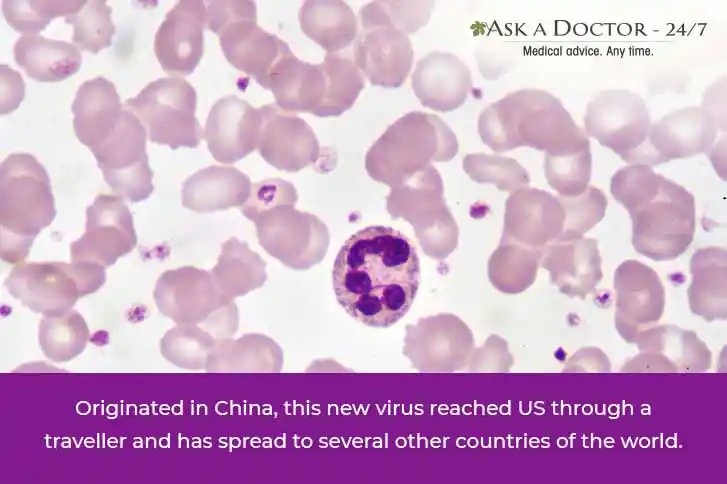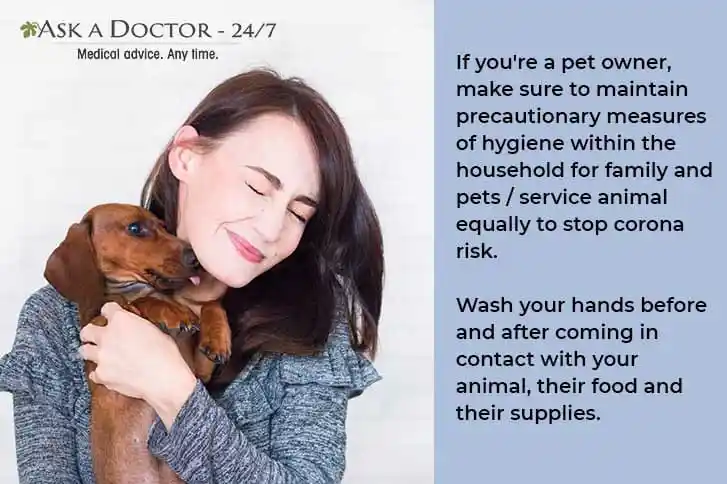Your Questions Related To COVID-19, Answered!
There is so much conflicting information about the COVID-19 pandemic swirling around on the internet that it makes almost everyone feel overwhelmed at times. With new information coming out every day and while experts are still learning about the coronavirus (COVID-19), we asked our panel of medical experts to answer your queries related to this pandemic. Read below science-backed answers to some of the most frequently asked questions that you too may have been thinking about.

1. Someone in my office appears to have tested positive for SARS-COV2. Should I quarantine myself or Should I still go to office?
If a person working in your office was tested positive for SARS-COV2, then make sure you quarantine yourself to your home for at least 14 days. You must self-quarantine yourself because there are chances of you having contracted the infection when the affected person was not tested and still around you.
Assuming there are no lockdown orders in your state and if the office premises is not decontaminated, I would suggest you avoid going to office for work. Going to work can expose you to non-tested cases of coronavirus who are in asymptomatic phase or have mild symptoms.
2. What if my employer wants me to come in but I’m frightened I’ll catch the virus?
If you cannot apply for a leave of absence and your employer insists that you come to office for work, you can go. Make sure there are no positive cases of SARS-COV2 in your office. If there is a positive case of COVID-19 in your office, make sure that the positive case of COVID-19 is admitted to hospital and isolated.
You may have to follow strict rules of infection-control like:
1. Wash your hands every two hours
2. Do not shake hands with other employees
3. Maintain a minimum 4 feet distance from your co-workers
4. Wearing a mask may not be necessary. But if you show symptoms, wearing a mask would be essential
5. Use hand sanitizer regularly, essentially before eating food
6. Reduce the usage of office machines. Where you have to touch them, do so after sanitizing them
7. Report any case of fever, cough, cold in the office
3. How long will this virus last and remain a potential threat? Will it always be a part of our environment, or will it run its course and completely disappear?
The duration of the viraemia (virus in blood) depends on the immunity level of the person infected. Usually, it stays for about 28 days in the human body with normal immunity. After about 21 days the person may become non-infective. Till then, he will be a potential threat. This is after the day of infection-virus entering the body. The test and its positivity can be proved at any stage in these 28 days. It will always be a part of our environment but may become less virulent due to antigenic (structural) changes. There are very negligible chances of it disappearing altogether.
4. What food should one eat under quarantine? How long should this change in diet be practised?
There is no special food restrictions for a person suspected of being infected or actually infected by COVID-19. You can follow your regular healthy diet of three-course meal and two mid-meal snacks. Only try to avoid chilled items, as it may aggravate your cold symptoms. Whether you are a positive or negative case or not-tested case of COVID-19, you can have regular food, unless there are contraindications based on medications used in positive cases. People under quarantine can also have regular available food without any specifications. These pandemics can run for months to years. There is no specific expiry period for such outbreaks.
5. Some say that Coronavirus is more like flu. I had taken flu vaccine recently. Should I be worried?
Yes, coronavirus causes infection like a flu virus. It affects the nasal, throat mucosa and lung tissue. The symptoms may be sometimes similar to seasonal flu, but in some cases can
worsen so as to cause death. The chances of morbidity increases in people who have co-morbidities like those who are elderly, or who suffer from diabetes, hypertension, immunodeficiency disorders, or are taking anti-cancer drugs, immunosuppressants, etc.
Though the virus causes symptoms like flu in some people, it is a different virus entirely. The vaccine against flu will not protect one against COVID-19. A vaccine for novel coronavirus may soon be developed and marketed.
6. Is COVID-19 more contagious or less contagious than the flu or other viral respiratory diseases?
The COVID-19 virus is more contagious than the regular flu virus. There is considerable human-to-human transmission and transmission through fomites (daily use articles) too. Fatality is much higher compared to the regular flu. Due to these reasons, the novel coronavirus is considered more dangerous than the usual flu viruses.
The case presentation may vary from asymptomatic, to mild symptomatic to severe acute respiratory distress syndrome leading to death in many.
7. How long do anti-bacterials such as alcohol-based sanitizers like Purell last when applied, and are they effective?
Hand sanitizers contain alcohol in about 50% to 75% strength. The alcohol is cidal (agent) to many bacteria and viruses. The alcohol denatures the protein coat of the virus or the cell of the bacteria and thus kills it. Most of the germs on our hands can get killed within seconds after applying the sanitizer. Though some may remain unaffected, majority of disease-causing pathogens die.
The alcohol evaporates within seconds of applying. Only a few ingredients like perfume and moisturizer stay smeared on the hand protecting it from dryness. Regular rubbing of hands with sanitizer would be necessary, especially after touching unsterilized/contaminated objects, or shaking hands with someone.
Alcohol-based hand sanitizers are effective, but the action is not long-lasting, and so needs regular reapplication.
8. My grandparents had taken pneumonia vaccination regularly. Would this help them against the SARS-COV2?
Pneumococcal vaccine given once a year is a vaccine against bacteria streptococcus pneumonia. This infection is very common in elderly and in immunodeficiency states. The
vaccine potentiates the innate immunity to fight against the infection when exposed in future.
COVID-19 is caused by the novel coronavirus SARS-COV2 which is an entirely different class of pathogen. The pneumococcal vaccine does not provide any sort of protection against COVID-19. But it might protect a positive case of coronavirus from getting superadded streptococcus pneumonia infection. There is no direct effect on coronavirus infection.
9. Is it safe to use swimming pools and hot tubs during the current coronavirus crisis?
No, it is not safe to use swimming pools and hot tubs during an outbreak of coronavirus which spreads through droplets. These droplets are the minute globules of secretion from the nose, throat and lungs. These carry the virus and can contaminate the fomites (daily use articles). There could be contamination of the objects around swimming pools and tubs like door handles, railings, towels, etc.
In any infection spreading through droplets, it is not safe to form a crowd or get close to a crowd. Swimming pools are such places where people from different houses come in
contact.
10. Can my pet get sick if I get infected by this virus? Can I get the virus from my pet?

The SARS-COV2 novel coronavirus originated from Wuhan city in China and it was considered to be transmitted through animals. There is no strong evidence that the virus is zoonotic (spreading through animals). The theory of animal spread was later debunked and human-to-human spread is considered the major route of transmission now.
It is very unlikely that your pet gets sick due to SARS-COV2 or the reverse. However, animals can spread the infection if their body is contaminated with viral-laden droplets from a
COVID-19 patient. So, it is always safe and advisable to follow rules of infection-control while dealing with pets and other animals.
In case you have few more queries that's adding to your worry, then you may consult an online Internal Medicine Expert now!
Ask a Specialist
Recent Questions


